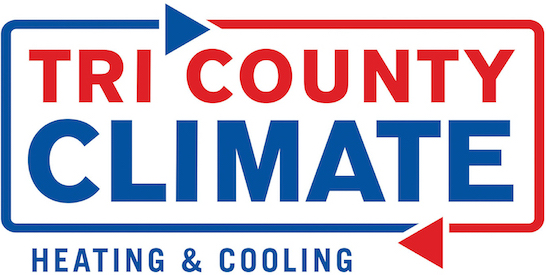
To avoid rising energy costs and work toward a more sustainable life, many homeowners are looking for ways to enjoy the same standards of comfort while reducing utility bills. As part of the Inflation Reduction Act, federal tax credits are available for upgrading to more efficient HVAC systems, such as air conditioners. These credits offer big savings, provided that homeowners choose eligible equipment and submit the appropriate form.
If you’re concerned the application process might be tedious, we can share something that will help! Tri County Climate Control LLC hopes this guide will provide all the information necessary to take full advantage of HVAC tax credits this year. Here’s how to make it happen.
Understanding the HVAC Tax Credits
These valuable tax credits for upgrading your home to be more energy-efficient are just one small part of the recent Inflation Reduction Act. With the higher cost of energy making an impact, helping more homeowners upgrade their equipment is always beneficial. The key provision of these credits is to mitigate costs associated with installation and renovation projects. Two of note are the Residential Clean Energy Credit and the Energy Efficiency Home Improvement Credit.
Don’t forget, in order to apply for the credits, you’ll need a completed IRS Form 5695. Additionally, this form needs to be submitted during the same tax year the upgrades were installed, not purchased.
Energy Efficiency Home Improvement Credit
Through 2032, the Energy Efficiency Home Improvement credit empowers homeowners by offsetting up to $3,200 every year for installing higher efficiency home upgrades. This can be up to 30% of the total project’s cost. You should be aware that in order to get back the maximum amount, it involves making different investments. For example, you’ll get up to $2,000 for installing a higher efficiency heat pump. This can be combined with the remaining $1,200 in credits for other eligible upgrades made within the tax year.
While heat pumps are a great use of the program, other HVAC upgrades like efficient furnaces and air conditioners also qualify. You’ll need to confirm the make and model’s energy efficiency rating is high enough for eligibility.
Residential Clean Energy Credit
The Residential Clean Energy Credit offers 30% savings on a variety of residential clean energy efficiency projects. Eligibility is only extended to homeowners looking for new clean energy solutions for their home. While the Home Improvement Credit focuses on utilities and HVAC systems, this credit targets renewable energy sources like solar and wind energy.
Some key details of this tax credit include the requirement that installation must occur between 2022 and 2032. But at the same time, homeowners can use any excess credit to reduce taxes in future years. This is a great way to make things a little easier when investing in renewables.
Additional Qualifications for Energy Tax Credits
Because HVAC systems are one of the biggest expenses on your energy bill, these tax credits can guide you to the most energy-efficient options. But home energy efficiency can be improved in many other ways. Apart from the previously listed HVAC upgrades, {you could also choose|other eligible items include|you also have access to:
- Energy-saving heat pump water heating systems
- Electrical panel upgrades
- Upgraded electrical wiring
- Enhancements to insulation, air sealing, and ventilation
- Energy-efficient cooking appliances like stoves, cooktops, and ovens
- Efficient heat pump clothes drying solutions
- High-efficiency water boilers
Like the HVAC systems, you’ll need to confirm that your chosen products meet the eligible energy efficiency ratings.
Maximizing Your 2024 HVAC Tax Credits: Top 3 Tips
While any of these upgrades can boost home energy efficiency, some planning ahead will ensure they offer the most long-term benefits. Get the most from your HVAC tax credits with these three tips:
- Conduct a home energy audit to identify impactful upgrades. Trust experienced HVAC companies to pinpoint essential products and services.
- Improve your home's thermal efficiency with better windows and doors.
- Explore potential rebates from utility companies for clean energy upgrades. Renewable sources like solar, wind, and geothermal contribute to community power grid sustainability.
- Remember to consider financing plans offered by service providers.
Secure Your 2024 HVAC Credits with Help from Tri County Climate Control LLC
Partner with local HVAC professionals like Tri County Climate Control LLC for eligible serves like energy assessments or new installation. Our experienced installers will deliver everything you need for a more energy-efficient home.

